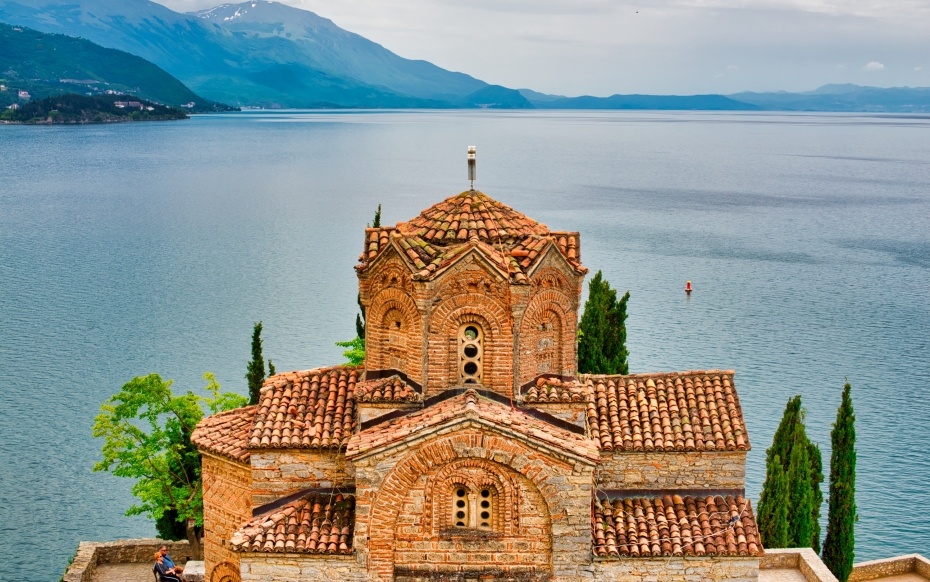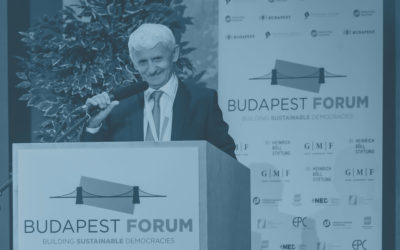What’s in a name? An intimate story of a generational choice
04 October 2018

Photo by Gorjan Ivanovski on Unsplash
I was born in 1991 when my country gained independence from Yugoslavia. The 90s added a new word in the Oxford dictionary, to balkanize = to divide (a region or body) into smaller, mutually hostile states or groups. Therefore, the Balkans became a synonym for destruction.
As I was growing up, the ghosts from the war kept haunting the older generations. The independency brought uncertainty on an economic, social and political level. By the time we got to travel abroad, we understood the name of our country was not the name of the country we were born in, but rather “out in the world” my country was the former Yugoslav Republic of Macedonia. Also, FYR Macedonia, FYROM, Skopje and most recently “your country”.
Since 1991, the country went through many difficulties in trying to establish democracy and build its way towards the European Union. It took us at least 15 years to consolidate this goal; from signing the Pact for Stabilisation and Association with the EU in 2002, becoming a candidate in 2005, adopting the Acquis Communitaire to still waiting on the negotiating process.
The main threat for the European integration was the 27 years old bilateral dispute with Greece on the name Macedonia. Thus, the process of accession negotiations remained frozen until the name dispute was consensually resolved by the two parties.
In July 2018, after my 27th birthday, in the 27th year of the declaration of independence of my country under its constitutional name Republika Makedonija, the foreign ministers of both countries signed an agreement which indicates that the country will be renamed as Republic of North Macedonia, which is a geographical distinction to the wider region of Macedonia that entails parts of Greece, Bulgaria and Albania.
The agreement also recognizes the Macedonian nationality and the language and the scope of these changes is erga omnes, which means that there will not be several names to refer to the same country but only one and it must be adopted within the Constitution. This is the “tradeoff” in this balancing of powers. Valuable lesson from real politics is that compromise is being reached when both sides are equally (un)satisfied in the end.
Many questions arose from this agreement: Is this a betrayal to our national interests? Are we losing our Macedonian identity? Is the EU and NATO membership price too high, are we becoming Northern Macedonians? Strong opposition followed the agreement on both sides, but also huge support for the peaceful resolution to a very sensitive dispute. It is being recognized as a momentum for a successful story, where for once the Balkans are a symbol of peaceful conflict resolution for a prosperous future.
The entire aftermath of the signing of the agreement until the referendum was followed by a divided atmosphere full of fear and determination. The pain of the traitors/heroes division that this process has brought is very apparent within our society. There was fear of responsibility to contribute to a historical moment, but with an uncertain outcome.
In the end, fear overcame determination with only one third of the population deciding to give their opinion on this matter (35%), which puts into question the legitimization of the agreement itself. On the other hand, over 90% voted in favour of the agreement, which is a clear indication that the people who gave their votes are determined for their European future. The reasons for this outcome are yet to be explored.
The outcome of the referendum has complicated the likelihood of adopting the constitutional changes in the Parliament, which are to follow according to the agreement. If the parliamentary majority fails to obtain the 2/3 majority, early elections are not to be excluded. The implementation of the agreement is to be initiated after (if there will be one?) ratification in the Greek Parliament.
According to the provisional agenda, there is a preliminary starting date of negotiations in June 2019 (very much depending on the outcome of the EP elections) and an invitation for NATO membership, depending on the dynamics of the implementation of the agreement.
One thing is certain, I still feel Macedonian, just like I did before. It is very likely that I will feel so in 10 years and that my mother tongue will remain Macedonian, because identities don’t change in a bureaucratic procedure.
I will wait patiently to see my country becoming a member of the European Union. I might feel scared now, but I know I will eventually feel proud.






